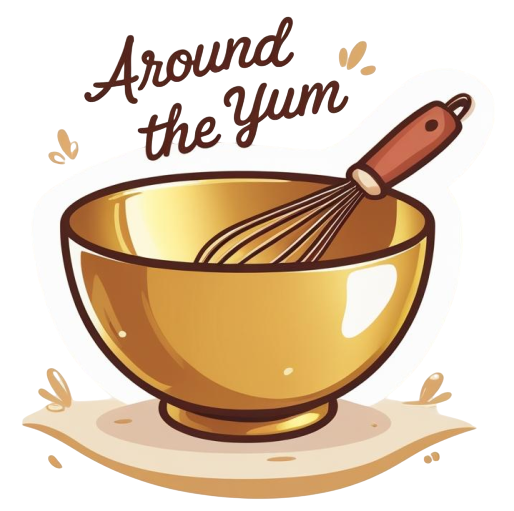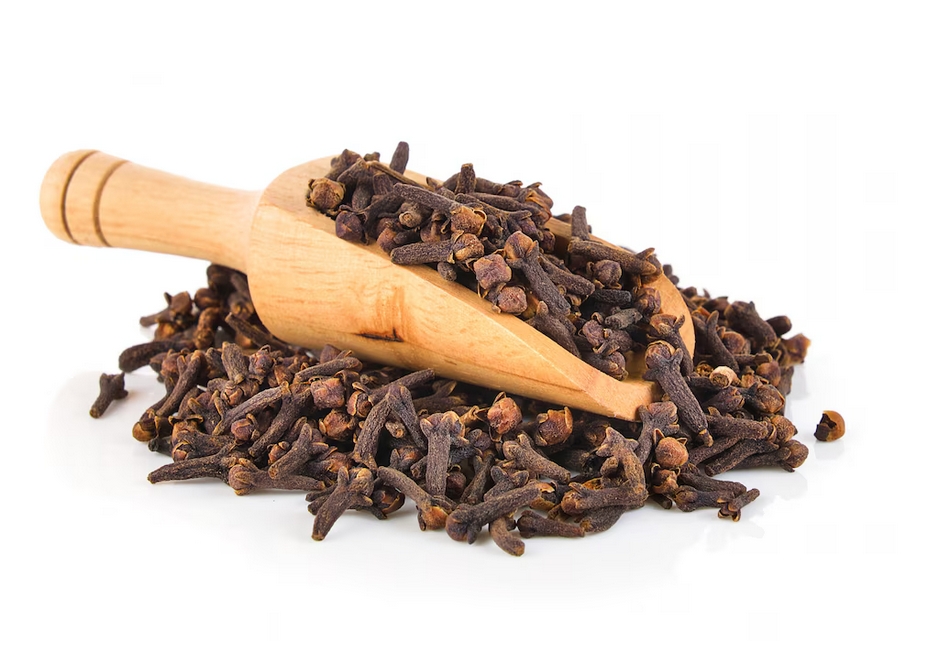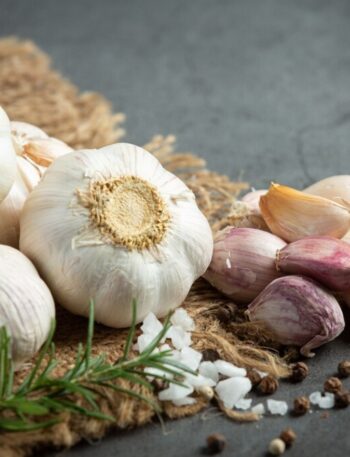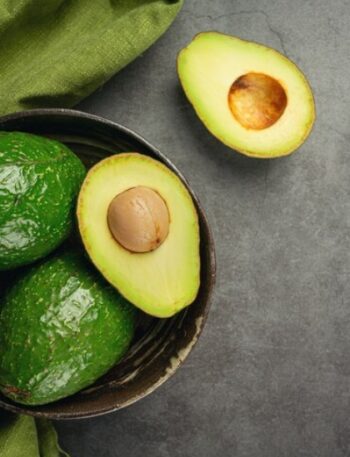Cloves: A Spice of Legacy
A Spice of Legacy, Aroma, and Culinary Richness – Cloves. Cloves are one of the most prized and aromatic spices in the world, known for their warm, sweet, and slightly bitter flavor. Used for centuries in cooking, perfumery, and spiritual rituals, cloves carry a rich history and cultural heritage that span continents and civilizations. Though small in size, this humble spice holds an outsized presence in global cuisine and traditional practices.
Origin and Botanical Background
Cloves are the dried flower buds of the Syzygium aromaticum tree, a tropical evergreen that belongs to the myrtle family (Myrtaceae). Native to the Maluku Islands—also known as the Spice Islands—in Indonesia, cloves were once so valuable that they became a major commodity in ancient global trade routes. These dark brown, nail-shaped buds are harvested before they open and then dried to develop their distinctive aroma and flavor.
The name “clove” is derived from the Latin word clavus, meaning “nail,” which is a direct reference to the bud’s shape. Over the centuries, clove cultivation spread from Indonesia to other tropical regions, including Madagascar, India, Sri Lanka, Tanzania (especially Zanzibar), and the West Indies. Today, countries like Indonesia and Madagascar remain leading producers of this precious spice.
Historical and Cultural Significance
Cloves have played an integral role in world history, particularly during the spice trade era. In ancient times, cloves were considered so valuable that they were traded ounce for ounce with gold. Archaeological evidence suggests that cloves were in use in Syria as early as 1700 BCE, and Chinese historical texts record their use as early as the Han dynasty (around 200 BCE), where court officials were required to chew cloves to freshen their breath before addressing the emperor.
During the Age of Exploration, cloves were among the most sought-after spices by European powers. The Portuguese, Dutch, and later the British vied for control over the clove-producing islands in Indonesia. The desire to dominate the spice trade fueled voyages, led to colonial conquests, and reshaped global economies. By this way, cloves, along with nutmeg and cinnamon, helped chart the course of world history.
In many cultures, cloves have deep-rooted ceremonial and religious importance. In India, cloves are used in sacred rituals and as offerings during religious festivals. Along Middle Eastern and North African traditions, they are often blended into incense. Even today, cloves are used symbolically in various spiritual and cultural contexts, signifying purification, prosperity, and vitality.
Appearance, Aroma, and Flavor Profile
Cloves are easily recognized by their small, reddish-brown, nail-like appearance. Each clove consists of a long, tapered stem and a rounded bud at the top. When crushed or ground, cloves release a powerful aroma that is both sweet and spicy, with a pungent warmth that is unmistakable.
The characteristic scent and taste of cloves come primarily from eugenol, a natural compound that accounts for most of the spice’s aromatic oil content. Eugenol gives cloves their distinctive warming and numbing qualities, making them stand out among other spices. This potency means a little goes a long way; just a few cloves can flavor an entire dish or batch of spiced tea.
The flavor of cloves is intensely aromatic, combining elements of sweetness, bitterness, and astringency. They pair well with other warm spices like cinnamon, nutmeg, cardamom, and allspice, and are commonly used in spice blends around the world.
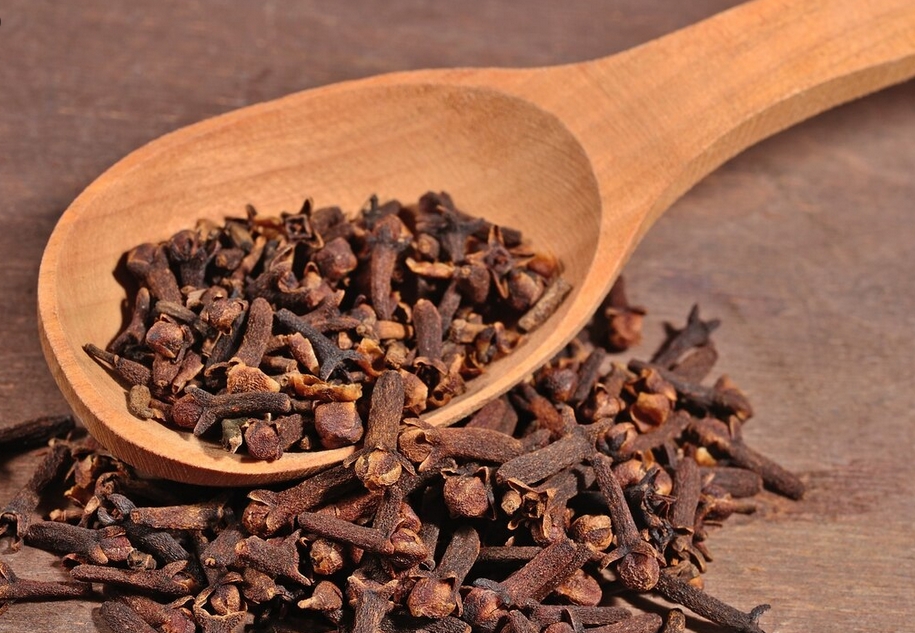
Culinary Uses Across the Globe
Cloves are an essential spice in a wide variety of global cuisines. In Indian cooking, cloves are used in curries, rice dishes like biryani, and spice blends such as garam masala. They are often added whole to hot oil to release their flavor at the beginning of the cooking process.
In Middle Eastern and North African cuisines, cloves are used in tagines, meat rubs, and rice preparations. They add depth and warmth to savory dishes, particularly when combined with other spices like cumin and coriander.
European culinary traditions also make good use of cloves. In Germany, they’re featured in mulled wine and spiced cookies such as lebkuchen. In France, cloves are often stuck into onions to flavor broths and stews. And in the UK and the US, cloves are a holiday staple, used in hams, pumpkin pies, and baked goods during festive seasons like Christmas and Thanksgiving.
Around Southeast Asia, cloves are blended into rich spice pastes and used to flavor meats and sauces. Indonesian and Malaysian cuisines use cloves extensively in rendang, soups, and marinades. Cloves are also used in Chinese five-spice powder, a popular blend that captures the balance of sweet, bitter, sour, salty, and pungent flavors.
Beyond solid food, cloves are widely used in beverages. Chai tea in India and spiced tea in Africa often include cloves, providing warmth and fragrance. In the Caribbean, clove-infused rum and holiday punches are common. European mulled wine recipes rely on cloves to contribute to the warming, festive aroma.
Cloves in Everyday Products
While cloves are best known for their culinary use, they also find their way into many household and personal care products. Due to their strong aroma and antiseptic properties, clove oil is a common ingredient in natural cleaning products, soaps, toothpaste, and mouthwash.
The warm, comforting scent of cloves also makes them a popular ingredient in potpourri and scented candles. In perfumery, cloves are used as a middle note, adding richness and spice to both men’s and women’s fragrances.
Clove oil, extracted from the buds and stems, has a wide range of applications in aromatherapy and personal care. It is known for its numbing effect and is often found in products for oral care and temporary pain relief. Though medicinal uses are not the focus of this article, it’s worth noting that cloves have a long-standing reputation for therapeutic properties in traditional systems like Ayurveda and Chinese medicine.
Harvesting and Production
Clove trees begin producing flower buds in their fourth or fifth year and can continue yielding for decades. Harvesting requires careful timing—buds must be picked just before they bloom to ensure maximum flavor and oil content. Once harvested, the buds are sun-dried until they darken in color and become brittle.
The drying process is crucial in preserving the essential oils and maintaining the spice’s strong aroma. After drying, the cloves are either packaged whole or ground into powder for culinary use. Quality cloves are identified by their uniform size, rich color, and strong scent. As with all spices, freshness is key—ground cloves lose potency more quickly than whole ones and should be used within a few months of opening.
Conclusion
Cloves are more than just a kitchen spice—they are a window into global history, culture, and culinary artistry. From ancient trade routes and royal courts to modern kitchens and festive tables, cloves have journeyed across the world and enriched countless traditions. Their bold flavor, rich aroma, and versatile applications make them an indispensable part of spice cabinets everywhere. Whether added to a savory stew, infused in a holiday drink, or used to perfume a room, cloves bring a touch of warmth, depth, and heritage to everything they touch.
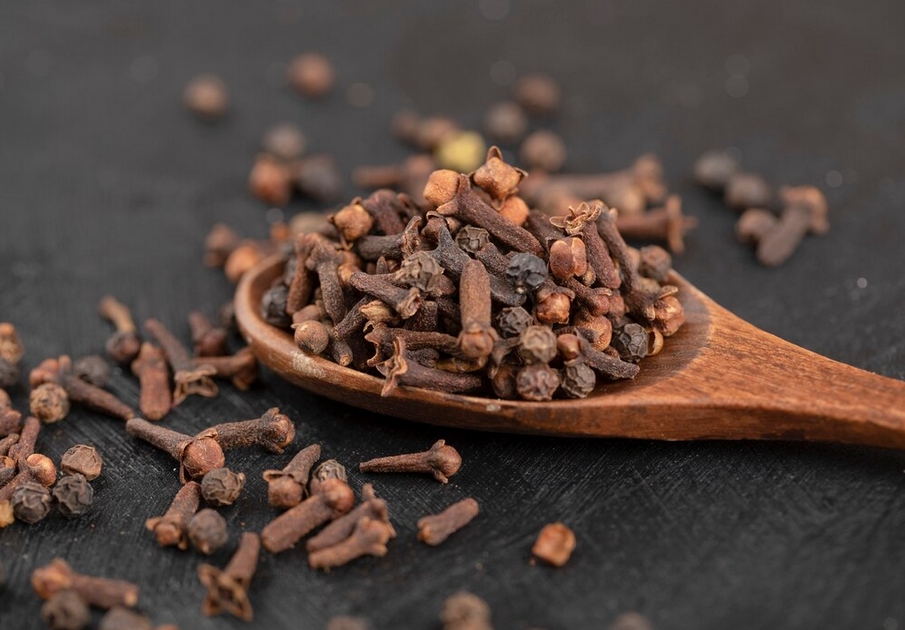
Health Benefits Of Cloves
Supports Digestive Health
Cloves are well-known for their ability to aid digestion. They stimulate the secretion of digestive enzymes, which helps improve overall digestion and reduce issues like bloating, gas, and indigestion. Chewing cloves or using clove oil in small amounts can also relieve nausea and vomiting. In traditional medicine, cloves have long been used as a natural remedy for stomach discomfort due to their soothing properties.
Rich in Antioxidants
Cloves are packed with powerful antioxidants, including eugenol, which help fight free radicals in the body. These antioxidants play a vital role in reducing oxidative stress, which can lead to chronic diseases such as cancer, diabetes, and heart disease. Regular consumption of cloves in moderation may help the body stay resilient against cell damage and premature aging.
Anti-Inflammatory Properties.
Thanks to eugenol and other active compounds, cloves exhibit strong anti-inflammatory effects. They help reduce inflammation in the body, which is beneficial for managing conditions like arthritis, sore muscles, and joint pain. Incorporating cloves into your diet or using clove oil topically can provide natural relief from inflammation-related symptoms.
Promotes Oral Health.
Cloves have natural antibacterial and analgesic properties that make them excellent for oral hygiene. Clove oil has been traditionally used to relieve toothaches, reduce gum inflammation, and fight infections in the mouth. Many dental products like toothpaste and mouthwash include clove extract to promote fresh breath and healthy gums.
Boosts Immune Function.
Cloves contain compounds that enhance immune response by increasing white blood cell count and improving their activity. Their antimicrobial and antiviral properties help the body fight off infections and strengthen its natural defenses. Including cloves in your meals or teas may support your immune system, especially during cold and flu season.
Helps Regulate Blood Sugar.
Some studies suggest that cloves may help regulate blood sugar levels, making them potentially beneficial for people with diabetes or prediabetes. They may improve insulin function and help the body process sugar more efficiently. When used as part of a balanced diet, cloves could support better glucose control and metabolic health.
Improves Liver Health.
Cloves are believed to support liver function and protect the liver from oxidative damage due to their high antioxidant content. Eugenol, in particular, has been shown to help reduce inflammation and promote detoxification in liver tissues. Regular but moderate consumption of cloves may help maintain liver health over time.
May Help Reduce Cancer
Risk.Preliminary research has shown that clove extracts may help slow the growth of certain cancer cells. Their high levels of antioxidants and eugenol may play a role in disrupting cell mutations and reducing inflammation, both of which are associated with cancer development. While more human studies are needed, these findings suggest cloves may have protective properties.
Supports Respiratory Health.
Cloves have been used traditionally to relieve respiratory conditions such as coughs, asthma, and bronchitis. Their expectorant and anti-inflammatory properties help loosen mucus, reduce throat irritation, and open up breathing passages. Drinking clove-infused teas or using clove oil in steam inhalation may ease breathing and soothe irritated airways.
May Improve Bone Health.
Cloves are a good source of nutrients like manganese, which is essential for bone formation and strength. Some studies have also found that cloves may help increase bone density and improve bone mineral content, making them potentially helpful in preventing conditions like osteoporosis. Adding cloves to your diet could support skeletal health over time.
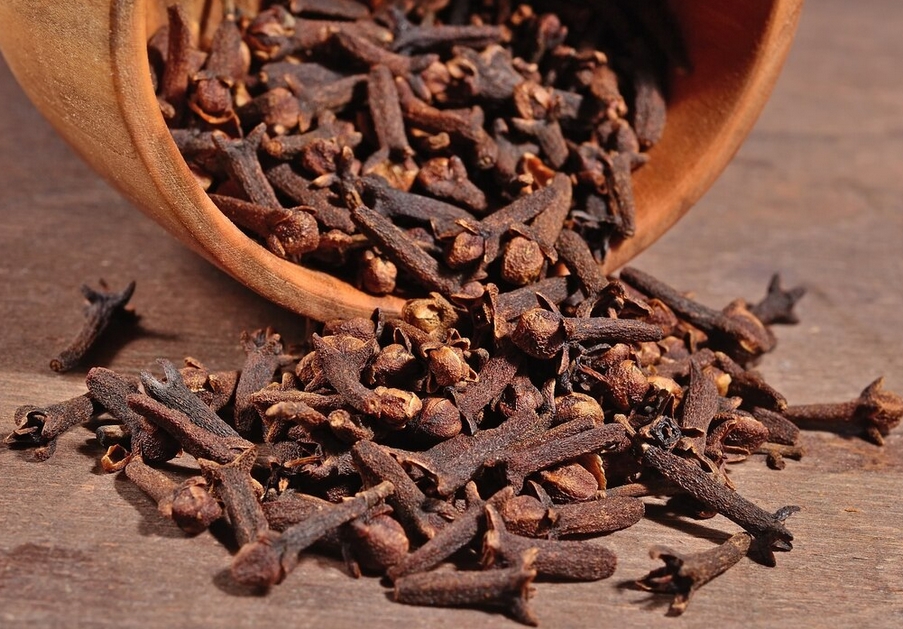
Frequently Asked Questions (FAQs) About Cloves
1. What are cloves?
Cloves are the dried flower buds of the clove tree (Syzygium aromaticum), native to the Maluku Islands in Indonesia. These aromatic spices are known for their intense flavor and fragrance, making them a staple in cooking, traditional medicine, and even perfumery. When dried, cloves resemble small, nail-shaped buds with a strong, pungent aroma and a sweet, slightly bitter taste.
2. What are the health benefits of cloves?
Cloves are packed with antioxidants, including eugenol, which gives them many of their medicinal properties. They are known to support digestive health, reduce inflammation, fight bacteria, and may even help regulate blood sugar levels. Cloves also contain vitamins like vitamin C and K, as well as minerals such as manganese, which contribute to bone health and immune function.
3. How are cloves used in cooking?
Cloves are a versatile spice used in both sweet and savory dishes around the world. In cooking, they are often used whole in stews, rice dishes, and meat marinades or ground into spice blends like garam masala or pumpkin pie spice. Their warm, spicy flavor pairs well with cinnamon, nutmeg, and cardamom, making them popular in baked goods, mulled wine, and spice teas.
4. Can cloves be used for toothaches?
Yes, cloves have traditionally been used to relieve toothaches due to their analgesic and antiseptic properties. Eugenol, the main active compound in cloves, acts as a natural anesthetic and antibacterial agent. Applying clove oil or chewing on a whole clove near the affected area may help numb the pain and reduce inflammation until professional dental care is available.
5. Are there any side effects of consuming cloves?
While cloves are safe when used in culinary amounts, consuming large quantities—especially clove oil—can lead to adverse effects. Overuse may cause digestive issues, liver damage, or allergic reactions in some people. Clove oil is potent and should be diluted before topical use or ingestion. It’s also important for pregnant or breastfeeding women and people with bleeding disorders to consult a doctor before using clove-based supplements.
6. What is clove oil and how is it used?
Clove oil is an essential oil extracted from the buds, leaves, or stems of the clove plant, typically via steam distillation. It’s highly concentrated and valued for its antimicrobial, anti-inflammatory, and analgesic properties. Common uses include relieving dental pain, treating minor skin irritations, supporting respiratory health, and acting as a natural insect repellent. Due to its strength, it should always be diluted with a carrier oil before topical application.
7. How should cloves be stored?
To maintain their flavor and potency, cloves should be stored in an airtight container in a cool, dark place away from sunlight and moisture. Whole cloves have a longer shelf life—up to a year or more—compared to ground cloves, which lose their potency faster. Proper storage helps preserve their essential oils and prevents the spice from becoming stale or losing its aroma.
8. Can cloves help with digestion?
Yes, cloves have carminative properties, meaning they help relieve gas and bloating in the digestive tract. They stimulate the secretion of digestive enzymes, making them effective in treating indigestion and nausea. Drinking clove tea or adding cloves to meals can support gut health and improve overall digestion.
9. Do cloves have antibacterial properties?
Cloves are known for their strong antibacterial and antimicrobial effects, largely due to the presence of eugenol. Studies have shown that clove extracts can inhibit the growth of several harmful bacteria, including E. coli and Staphylococcus aureus. This makes them useful in natural remedies for oral hygiene, wound care, and even food preservation.
10. Are cloves safe for children and pets?
In small culinary amounts, cloves are generally safe for children. However, clove oil should be used with caution and only under medical supervision for children, as it can be too strong and irritating. For pets, especially cats and dogs, clove oil is toxic and should be avoided entirely. Always consult a veterinarian before using any essential oils around animals.
